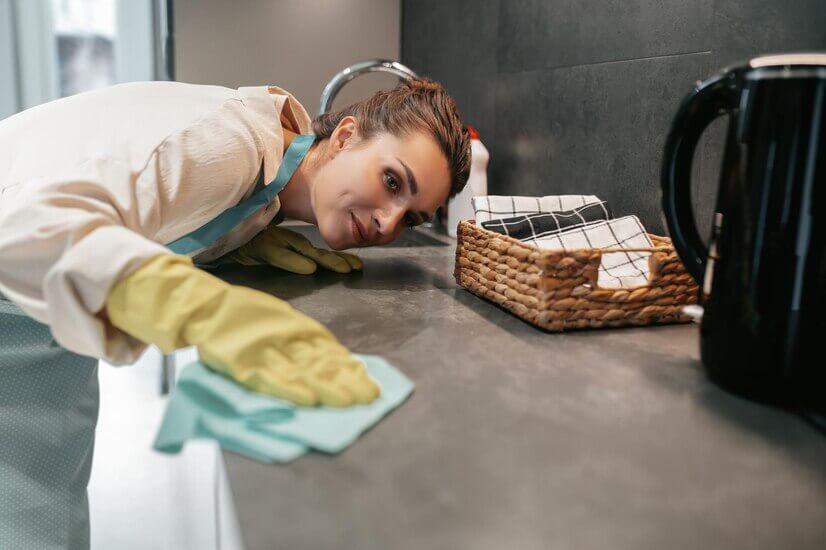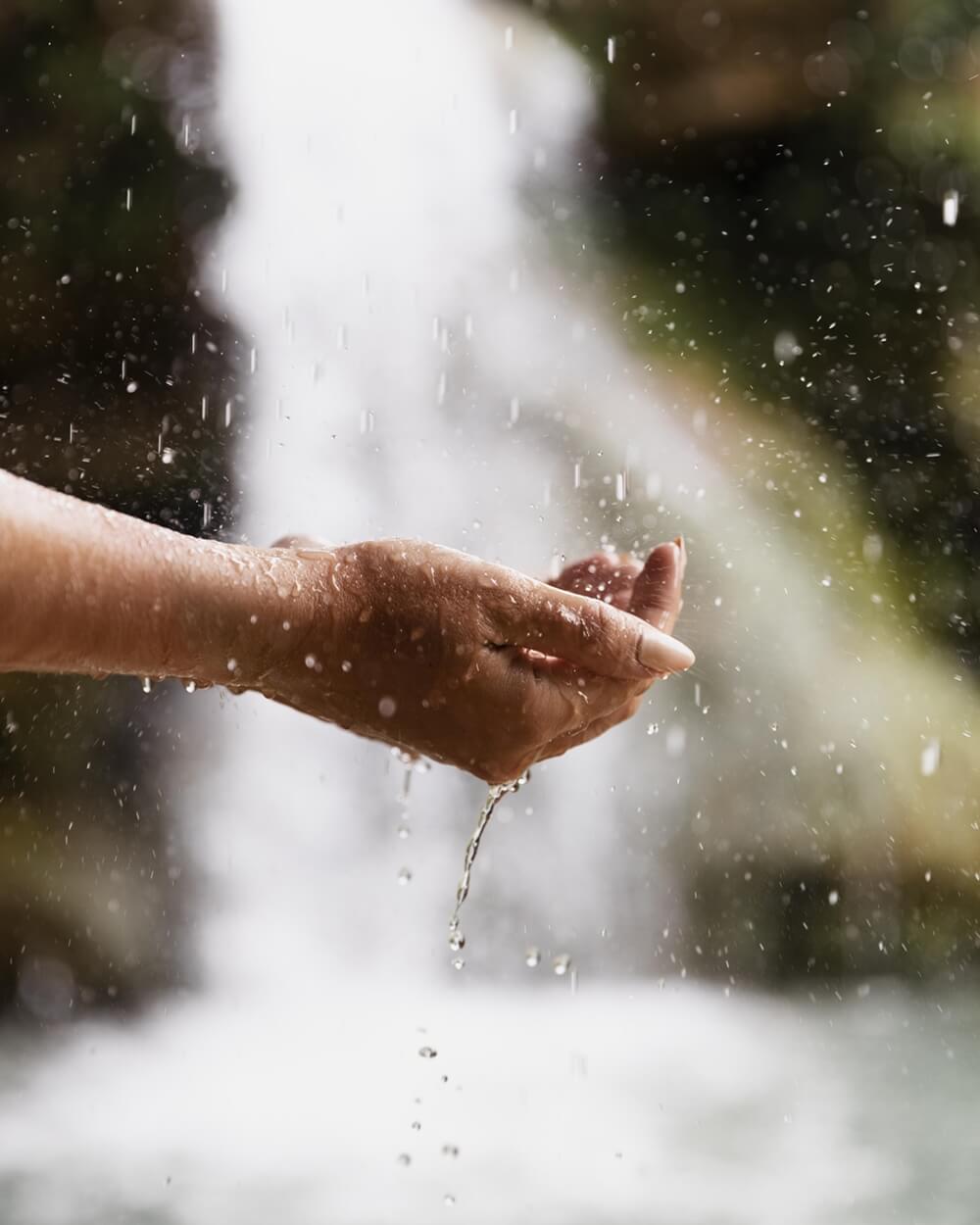It's that time of year again when the urge to fling open the windows, declutter, and breathe new life into our homes takes hold. But before you reach the usual cleaning supplies, let's consider a more Earth-friendly approach!
We'll be sharing simple tips and tricks on how to approach spring cleaning with an eco-conscious mindset to get your home sparkling clean while minimizing your environmental impact.
Why Eco-Conscious Cleaning Matters
Spring cleaning holds the potential not just to refresh our living spaces but to make a significant positive impact on the planet. Choosing an eco-conscious approach matters for various reasons. Firstly, it safeguards indoor air quality by steering clear of volatile organic compounds (VOCs) and harsh chemicals found in traditional cleaning products, promoting a healthier environment, particularly for vulnerable groups.

Secondly, it plays an essential role in preserving water quality by avoiding the use of harmful ingredients that can pollute water sources and harm aquatic life.
Lastly, eco-conscious cleaning reduces waste by shunning single-use products, such as disposable wipes and paper towels, and opting for reusable alternatives, thus contributing to landfill reduction and a healthier planet.
So, small switch, big impact! Eco-friendly cleaning leads to a cleaner home and a brighter future for our planet.
Eco-Friendly Cleaning Products
When it comes to spring cleaning, the products we use play an important role in minimizing our environmental impact. Fortunately, there's a wide array of eco-friendly cleaning products available that are not only effective but also gentle on the planet. These products harness the power of natural ingredients to clean your home without leaving behind harmful residues or toxins.

Instead of harsh chemicals like chlorine bleach and ammonia, eco-friendly cleaning products often contain plant-based surfactants, essential oils, and other biodegradable ingredients. These ingredients work together to break down dirt and grime while being safer for both you and the environment.
If you prefer a DIY approach, you can also make your own eco-friendly cleaning products using simple ingredients like vinegar, baking soda, and lemon. These natural ingredients have powerful cleaning properties and can tackle everything from kitchen countertops to bathroom fixtures.
Decluttering and Donation
Decluttering is an essential first step to creating a more organized and spacious living environment. Rather than simply tossing out unwanted items, consider donating them to those in need! Not only does this practice reduce waste, but it also provides valuable resources to individuals and families who can benefit from your generosity.
Start by going through your belongings room by room and identifying items that you no longer use or need. This can include clothing that no longer fits, household goods that have been replaced, or electronics that are no longer in working condition. Be honest with yourself about what you truly need and what you can live without.

Once you've gathered your unwanted items, research local charities, thrift stores, and donation centers where you can drop off your donations. Many organizations accept a wide range of items, including clothing, furniture, kitchenware, and electronics. Some may even offer pickup services for larger items like furniture or appliances.
Before donating, be sure to check the organization's guidelines and requirements for donations. Some may have specific items they do or do not accept, as well as guidelines for cleanliness and condition.
Not only does donating unwanted items help reduce waste and support charitable organizations, but it also provides a sense of satisfaction and fulfillment knowing that you're making a positive difference in your community.
Energy and Water Conservation Tips
Apart from using eco-friendly cleaning products, there are several other ways to make our spring cleaning efforts more sustainable. Simple actions like turning off lights and unplugging electronics when not in use can help conserve energy and reduce utility bills. When cleaning, opt for energy-efficient appliances and choose cold water over hot water whenever possible.

Water conservation is also important during spring cleaning. Instead of letting the tap run continuously, fill a bucket with water to rinse mop heads and cleaning cloths! This not only saves water but also prevents unnecessary waste, you can also consider collecting rainwater for outdoor cleaning tasks like watering plants and washing windows.
Sustainable Cleaning Practices
When it comes to cleaning tools and materials, choosing sustainable options can make a big difference. Instead of disposable wipes and paper towels, opt for reusable microfiber cloths and bamboo cleaning brushes. These durable alternatives reduce waste and also provide superior cleaning power without the need for harsh chemicals.

Another sustainable practice is to minimize packaging waste by purchasing cleaning products in bulk or opting for refillable containers. Many eco-friendly brands offer refill stations or subscription services that allow customers to replenish their supplies without generating additional packaging waste.
Greening Your Laundry Routine
Never forget your laundry! Making eco-friendly choices here can make a big splash for the environment. Traditional laundry detergents and fabric softeners often contain synthetic fragrances and chemical additives that can pollute waterways and harm aquatic life.
Luckily, simple swaps like switching to eco-friendly products can keep your clothes clean and fresh while protecting the planet. Look for products that are plant-based and free from synthetic fragrances, dyes, and other harmful chemicals.

In addition to choosing eco-friendly detergents, consider washing your clothes in cold water whenever possible. Washing in cold water not only saves energy but also helps preserve the colors and fabrics of your clothing. For heavily soiled items, pre-treat stains with a natural stain remover before washing to ensure thorough cleaning without the need for hot water.
When it comes to drying your clothes, opt for air-drying methods whenever possible. Hanging clothes on a clothesline or using a drying rack saves energy and helps extend the life of your clothing by reducing wear and tear from the dryer. If you do use a dryer, consider investing in wool dryer balls, which can help reduce drying time and static cling without the need for fabric softener sheets.
Final Thoughts,
Thank you for reading through to the end! We trust this blog post has armed you with the know-how and motivation to handle your spring cleaning in an eco-friendly manner. Keep in mind, even small adjustments can have a significant impact on your home and the environment. So, take on that clutter with sustainability in mind.
Happy spring cleaning!

